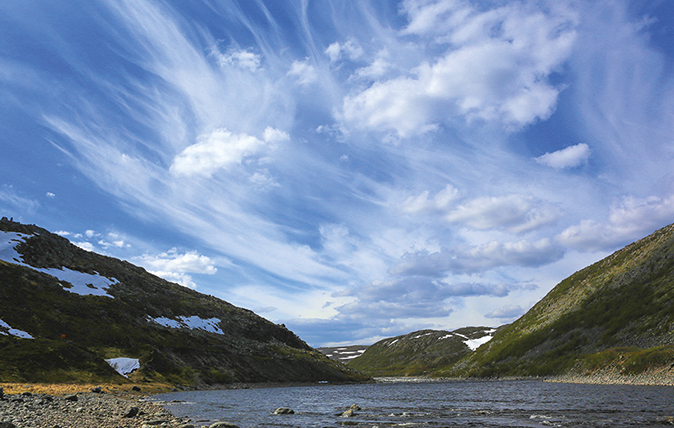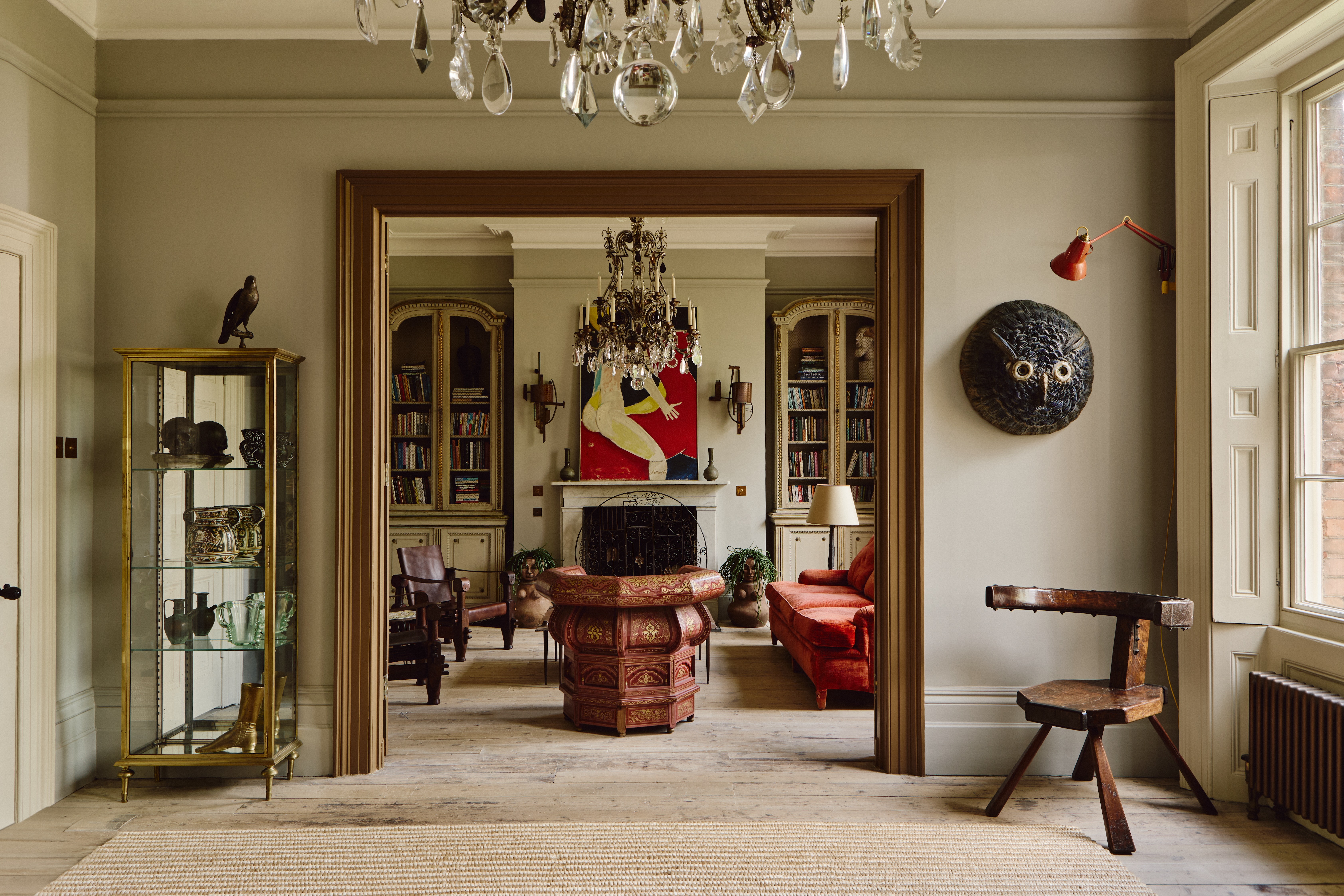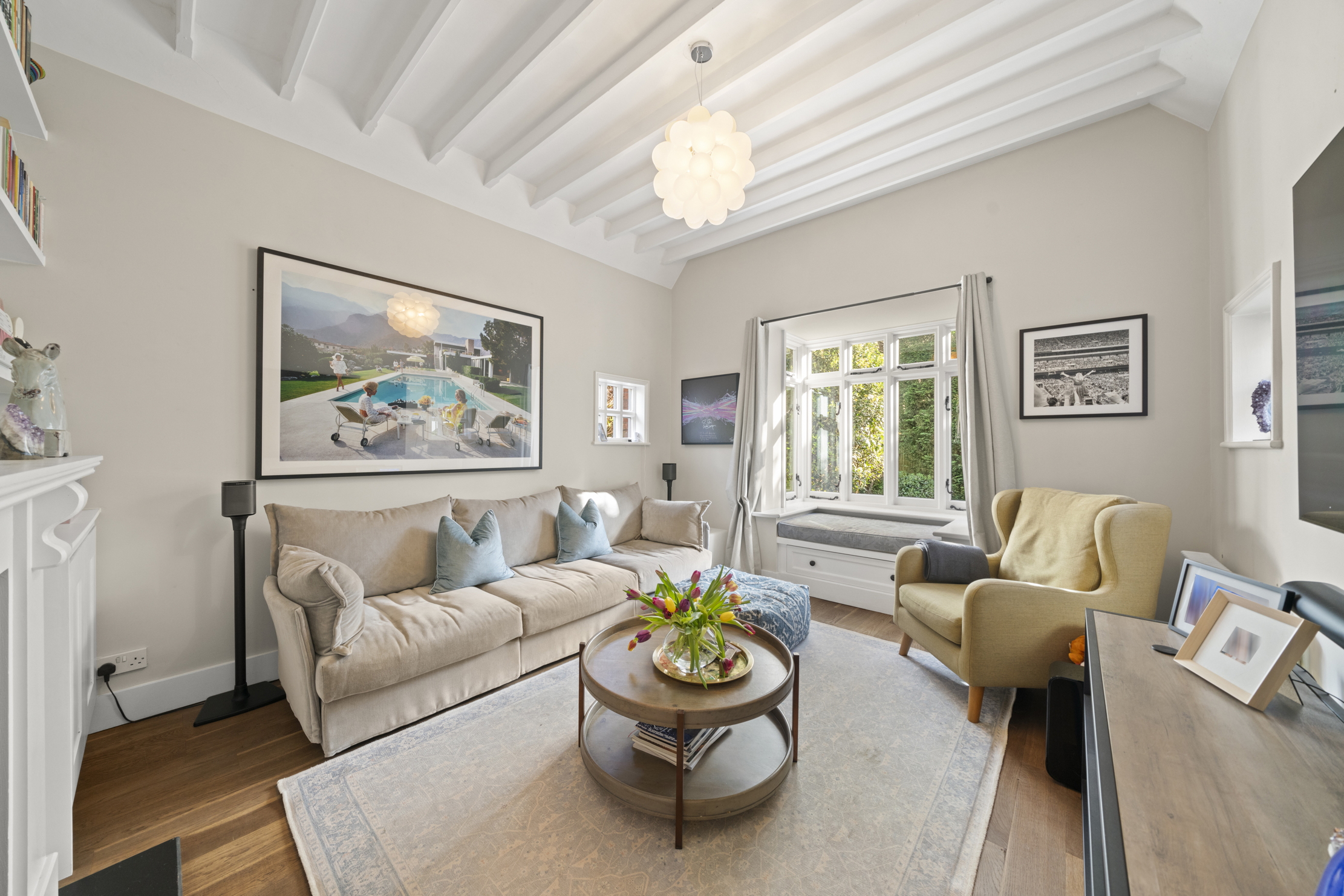Reel Life: Russia’s Atlantic Salmon Reserve
Russian roulette on the Rynda.


More line. Mend up. Wait, wait, wait, wait, wait—hotspot. Now, stripping!’ Yesterday morning I was at my desk; this evening, I am running a conehead tube down the tail of the Home Pool, with Genna the Russian guide at my elbow. There is a silver flare in the stream and I’m into my first ever Rynda salmon. ‘My friend, you are very lucky fisher,’ he declares. Well, just being here is a stroke of good fortune. Tide-bright, 10lb, weighed, tagged and released. ‘And now,’ announces Genna, ‘many vodka.’
One of the quintessentially wild, northern rivers that debouches into the Barents Sea from the Kola peninsula, the Rynda flows through pristine tundra—there are no roads in this neck of the woods, just reindeer tracks and the odd dollop of bear scat to keep you on your toes. It’s deliciously severe and lonesome terrain and some think it offers the finest salmon-fishing experience in the world.
Access is via a private charter from Helsinki to Murmansk. The night before we flew, massed anglers destined for several Kola camps swirled and chatted in the hotel like characters from George Earl’s Victorian canvas Going North, King’s Cross Station. From Murmansk, you transfer by huge, juddering helicopter across jigsawed wetlands still daubed with snow, until the Rynda camp—sited in a craggy amphitheatre, where a mighty waterfall enters a lake—materialises beneath you.
Created in 2003 by British pioneer Peter Power, the Atlantic Salmon Reserve is a vast conservation area containing three other principal rivers—the Kharlovka, the Eastern Litza and the lovely little Zolotaya. I was a guest of the present owner, Vladimir Rybalchenko, president of Farlow’s, the Pall Mall emporium, and the first Russian national to be elected a member of our August Fly Fishers’ Club. The camp is a model of efficiency and comfort. Individual cabins with proper en-suite plumbing, a laundry service, a resident doctor and attentive and delightful staff—this would be spoiling on Speyside but, here in the wilderness, it’s little short of a miracle.
I’m fond of finding fault, but, as I told my host one dinnertime, the operation seemed immaculate. ‘Be sure to let me know if you do think of something,’ replied his interpreter. Vladimir himself is fishing some 25 weeks worldwide this year—fittingly, Rybal means fisherman in Ukrainian.
This was still early season, so we tackled up with stout gear. My Scottish partner, Ian Mitchell, and I opted for 15-footers and largely stuck with floating lines, as the surface takes can be spectacular, even though, at about 8 ̊C, the water was still a bit chilly for the riffle-hitched fly. The Rynda isn’t quite the trophy-hunters’ destination certain other rivers have become (and the camp is perhaps all the more relaxed for that) but a 30-pounder is always a distinct possibility and the record salmon stands at 42lb.
Its 80-odd pools offer an impressive variety, from gorgey runs to open flats, with little need for distance casting and the wading is generally manageable. You can appreciate why many guests here are ‘repeat offenders’—one of our cosmopolitan party of nine rods, Simon Hughes, was on his 52nd ‘Russian rivers’ week.
Sign up for the Country Life Newsletter
Exquisite houses, the beauty of Nature, and how to get the most from your life, straight to your inbox.
and headstrong, with cold winds that made the fishing patchy. ‘Is giving fish headache,’ lamented our guide, ‘but what I can do?’ We had to work hard, but when we did find pockets of fish, they were all coruscatingly fresh and the sport was tremendous. I had one red-letter day, when we were choppered upstream to Red Cliff pool, leaving us the morning to yomp our way back to the camp. Genna pondered my flybox with his meditative refrain (‘so, so, so, so, so’) and selected a Dave’s Highlander tube. I’m glad he did. At Roy’s Bath, the first little run, it was seized by a muscle-bound 12- pounder. From beyond the boulder at Norway Pool, it was taken by a vigorous 15-pounder.
In the Home Pool, after our picnic lunch, it found me a ‘mere’ nine-pounder and we finished off with another beauty from the neck of Little Eira. Coming back over the Falls, I felt on top of the world.
The atmosphere in camp is nicely informal. Hang the outdoor kit up in your personal drying cupboard, pull on chinos and a fleece and potter along the duckboards to the extensive, complimentary bar and your three-course, candlelit nightly feast. The Rynda experience doesn’t exactly come cheap, but it is impeccable.
If you have any energy left, the productive Home Pool is even available for dinner, but, following such long, full days—and many vodka—I tended to turn in early.
Our favourite beat was probably Rock Island, where Ian hooked several fish in the glide known as Dancing Platform, working a Sunray Shadow, as, from the other side of the island, I took one that rose like a porpoise. ‘How cool was that?’ asked Christiaan the photographer. Stripping these surface lures, you don’t convert all the offers, but the adrenaline factor is stratospheric.
Near the tailout is a rock (Per’s Place) where we saw action every time we visited. I had one take that wrenched like a tuna: in a fit of ‘buyer’s remorse’, the salmon leapt, then headed for the rapids, repeatedly burning my finger on the backing. ‘Is very crazy fish,’ said Genna. In the net, he weighed exactly 20lb and sported a sea-lion scar around his shoulders. This was the fish I had come for and I walked back upstream rejoicing.
Time passes in strange, elastic ways out here. Soon, your intense week is over in a glorious silver flash. Ian and I managed to hold on to 17 fish between us, out of the party’s total of 65—not a bonanza by Rynda standards, but blissful in reel life. So, so, so, so, so.
The season on the Rynda runs from early June until mid September. For information about the Atlantic Salmon Reserve, telephone Justin McCarthy on 07460 292170 or visit www.kharlovka.com
Agnes has worked for Country Life in various guises — across print, digital and specialist editorial projects — before finally finding her spiritual home on the Features Desk. A graduate of Central St. Martins College of Art & Design she has worked on luxury titles including GQ and Wallpaper* and has written for Condé Nast Contract Publishing, Horse & Hound, Esquire and The Independent on Sunday. She is currently writing a book about dogs, due to be published by Rizzoli New York in September 2025.
-
 ‘It had the air of an ex-rental, and that’s putting it politely’: How an antique dealer transformed a run-down Georgian house in Chatham Dockyards
‘It had the air of an ex-rental, and that’s putting it politely’: How an antique dealer transformed a run-down Georgian house in Chatham DockyardsAn antique dealer with an eye for colour has rescued an 18th-century house from years of neglect with the help of the team at Mylands.
By Arabella Youens
-
 A home cinema, tasteful interiors and 65 acres of private parkland hidden in an unassuming lodge in Kent
A home cinema, tasteful interiors and 65 acres of private parkland hidden in an unassuming lodge in KentNorth Lodge near Tonbridge may seem relatively simple, but there is a lot more than what meets the eye.
By James Fisher